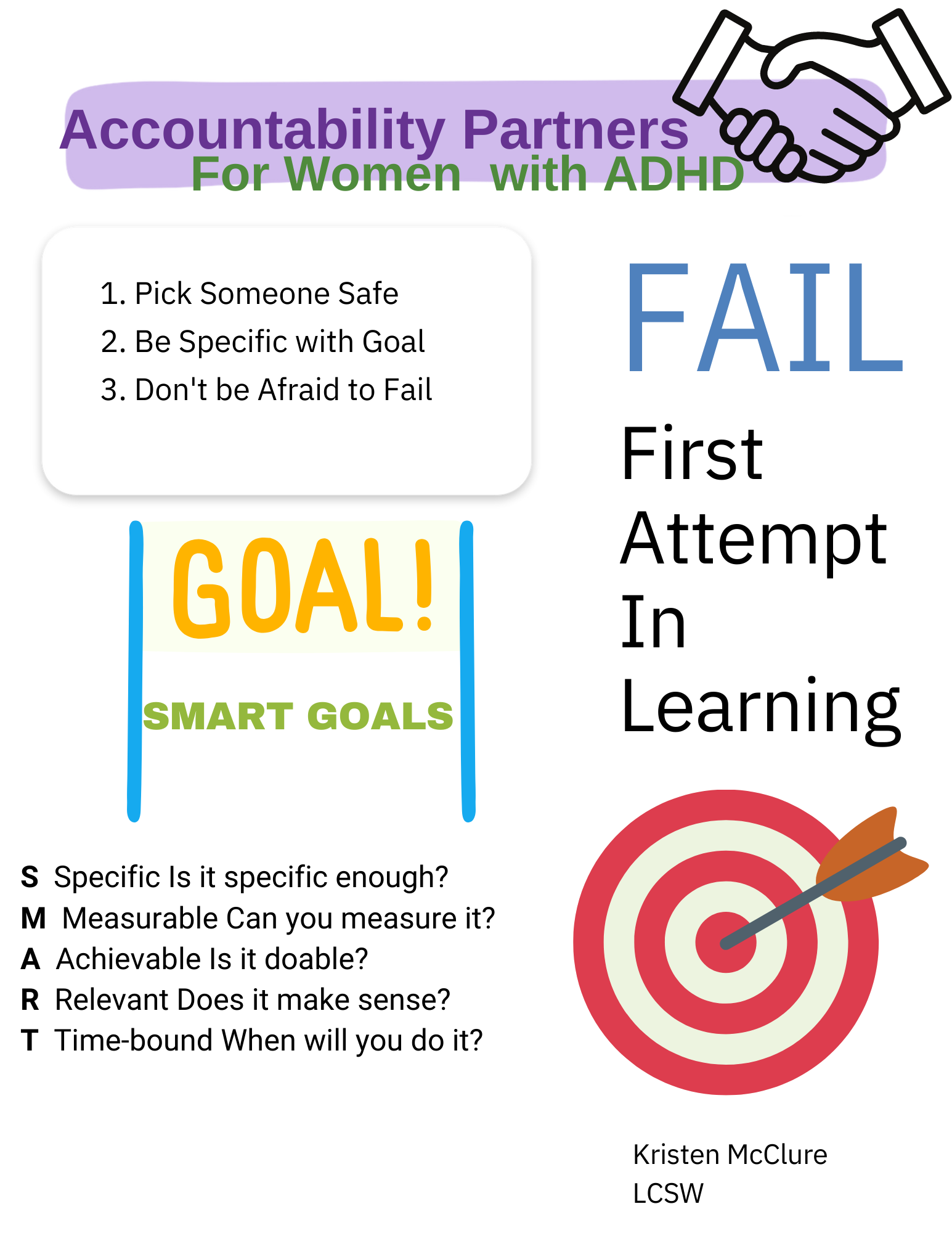Exploring Intersectionality in ADHD: Impacts of Race, Ethnicity, and Gender Identity
ADHD is a complex neurodevelopmental difference that affects individuals in various ways. However, when we add the layers of race, ethnicity, and gender identity into the mix, the impacts of ADHD become even more nuanced. In this post, we will delve into the concept of intersectionality and ADHD and explore how different identities can shape experiences with this neurotype.
Understanding Intersectionality in ADHD
What is Intersectionality?
Intersectionality is a concept coined by legal scholar Kimberlé Crenshaw in 1989, which highlights the interconnected nature of social categorizations such as race, gender, class, and sexuality. It acknowledges that individuals can experience multiple forms of discrimination or privilege based on these intersecting identities.
The Link Between ADHD and Intersectional Identities
Research has shown that individuals with ADHD who also belong to marginalized groups based on race, ethnicity, or gender identity may face unique challenges in accessing diagnosis, treatment, and support for their condition. These intersectional identities can influence how ADHD manifests and how healthcare providers and society at large perceives it.
Impacts of Race on ADHD Diagnosis and Treatment
- Studies have found disparities in the diagnosis of ADHD among different racial and ethnic groups.
- African American and Hispanic children are less likely to be diagnosed with ADHD compared to their white counterparts.
- Cultural factors, such as stigma surrounding mental health issues or differences in healthcare access, may contribute to these disparities.
Impacts of Ethnicity on ADHD Symptoms
- Research suggests that cultural differences can affect how ADHD symptoms are expressed.
- For example, hyperactivity may be more accepted in some cultures than others, leading to underdiagnosis or misinterpretation of symptoms.
Impacts of Gender Identity on ADHD Experience
- Gender norms and expectations can play a role in how ADHD is perceived in individuals.
- Boys are more commonly diagnosed with ADHD than girls, possibly due to differences in symptom presentation or biases in diagnostic criteria.
- Non-binary individuals may face additional challenges in accessing appropriate care for their ADHD due to lack of awareness about diverse gender identities within the healthcare system.
In conclusion, understanding the intersectionality of race, ethnicity, and gender identity is crucial for providing equitable care for individuals with ADHD. By recognizing the unique challenges faced by those with intersecting identities, healthcare providers can better support their diverse needs.
Race and ADHD Diagnosis

Disparities in ADHD Diagnosis Among Different Races
Research has shown that there are significant disparities in the diagnosis of ADHD among different racial groups. Studies have found that Black and Hispanic children are less likely to be diagnosed with ADHD compared to their White counterparts. This discrepancy raises concerns about potential underdiagnosis and undertreatment of ADHD in minority populations.
How Cultural Backgrounds Influence the Perception of ADHD
Cultural backgrounds play a crucial role in shaping the perception of ADHD within different racial communities. Some cultures may view symptoms of ADHD, such as hyperactivity or impulsivity, as normal behavior rather than signs of a neurodevelopmental disorder. This cultural perspective can lead to misinterpretation of symptoms and reluctance to seek professional help for ADHD-related issues.
"Understanding how cultural beliefs and norms impact the recognition and treatment of ADHD is essential for addressing disparities in diagnosis and ensuring equitable access to care."
Ethnicity and Its Role in ADHD Treatment
The Impact of Ethnic Background on Access to ADHD Treatment
When considering the intersectionality of race, ethnicity, and ADHD, it is crucial to acknowledge the disparities that exist in access to treatment based on ethnic background. Studies have shown that individuals from minority ethnic groups are less likely to receive a timely diagnosis for ADHD and are often undertreated compared to their white counterparts. This can be attributed to various factors such as cultural stigma surrounding mental health, lack of awareness about ADHD within certain communities, and systemic barriers in accessing healthcare services.
Cultural Competence in Treating ADHD Among Various Ethnic Groups
Healthcare providers must strive for cultural competence when treating individuals with ADHD from diverse ethnic backgrounds. This involves understanding the unique cultural beliefs, values, and practices that may influence how ADHD symptoms are perceived and managed within different communities. By incorporating culturally sensitive approaches into diagnosis and treatment plans, healthcare professionals can better address the specific needs of patients from various ethnic groups and improve overall outcomes.
Gender Identity and Experiences with ADHD
Gender identity plays a significant role in how individuals experience and manage ADHD. It is crucial to consider the unique challenges faced by non-binary and transgender individuals with ADHD, as well as the gender differences in symptoms and management strategies.
Challenges Faced by Non-binary and Transgender Individuals with ADHD
Non-binary and transgender individuals with ADHD often face additional challenges due to societal stigma, discrimination, and lack of understanding. These individuals may struggle to access appropriate healthcare services, including diagnosis and treatment for their ADHD. Additionally, the intersection of gender identity and ADHD can impact self-esteem, mental health, and overall well-being.
Gender Differences in ADHD Symptoms and Management Strategies
Research suggests that there are gender differences in how ADHD presents itself and how it is managed. For example, boys are more likely to exhibit hyperactive-impulsive symptoms, while girls may display more inattentive symptoms. This can lead to underdiagnosis or misdiagnosis of ADHD in girls and women. Furthermore, gender stereotypes may influence the perception of ADHD "symptoms", leading to different management strategies based on gender.
Overall, understanding the intersectionality of gender identity with ADHD is essential for providing comprehensive care and support for all individuals affected by this neurodevelopmental difference.
Case Studies: Real Stories of Intersectionality in ADHD

Analyzing Diverse Experiences to Understand Broader Patterns
In exploring the intersectionality of ADHD, it is crucial to delve into real-life case studies that highlight the unique experiences of individuals from diverse backgrounds. By analyzing these stories, we can gain a deeper understanding of how race, ethnicity, and gender identity intersect with ADHD and shape individuals' experiences.
One such case study involves a young Black woman diagnosed was ADHD at a later stage in life. Despite exhibiting adhd since childhood, societal stereotypes and lack of awareness about ADHD in her community delayed her diagnosis. This case sheds light on the barriers faced by individuals from marginalized communities in accessing timely diagnosis and treatment for ADHD.
Another case study features a Hispanic non-binary individual navigating their ADHD while also grappling with cultural expectations around gender roles. This story underscores the importance of considering how gender identity intersects with ADHD experiences and the need for culturally competent care for individuals with diverse gender identities.
Lessons Learned from Individual Cases
Through these case studies, we learn valuable lessons about the complex interplay between race, ethnicity, gender identity, and ADHD. Some key takeaways include:
- Intersectional Identities: Individuals with intersecting identities face unique challenges in navigating their ADHD "symptoms "due to societal biases and systemic barriers.
- Cultural Competence: Healthcare providers must be culturally competent to provide effective care for individuals from diverse backgrounds.
- Advocacy and Awareness: Advocacy efforts are essential to raise awareness about the intersectionality of ADHD and ensure equitable access to resources for all individuals.
- Support Networks: Building support networks that acknowledge and address the intersectional experiences of individuals with ADHD is crucial for promoting holistic well-being.
By examining these real stories of intersectionality in ADHD, we can work towards creating a more inclusive and supportive environment for individuals with diverse backgrounds affected by this condition.
How We Support Women with Intersectional Identities at Kristen McClure Therapist
At Kristen McClure Therapist, we understand the importance of recognizing and addressing the unique intersectional identities of women with ADHD. Our tailored approaches to therapy for women with ADHD or anxiety take into account the impacts of race, ethnicity, and gender identity on their experiences.
Tailored Approaches to Therapy for Women with ADHD or Anxiety
Our therapists are trained to provide culturally competent care that acknowledges the diverse backgrounds and identities of my clients. By incorporating an intersectional lens into our therapeutic approaches, we aim to create a safe and inclusive space for women with ADHD or anxiety to explore their challenges and strengths.
Empowering Women to Unmask Their True Selves Through Holistic Support
We believe in empowering women to unmask their true selves by providing holistic support that considers all aspects of their identity. From addressing societal expectations based on race or ethnicity to exploring how gender identity intersects with ADHD "symptoms", our therapists work collaboratively with clients to foster self-discovery and personal growth. Through this holistic approach, we strive to help women embrace their authentic selves and navigate the complexities of living with ADHD in a world that may not always understand their intersecting identities.
Conclusion
Understanding the intersectionality of ADHD is crucial in providing effective support and treatment for individuals from diverse backgrounds. By recognizing the unique challenges faced by those with intersecting identities, we can work towards creating a more inclusive and supportive environment for all adhd people. At Kristen McClure Therapist, we are committed to empowering women with intersectional identities to unmask their true selves through tailored therapy approaches and holistic support.






